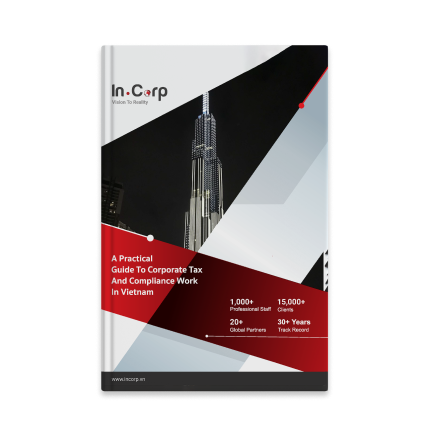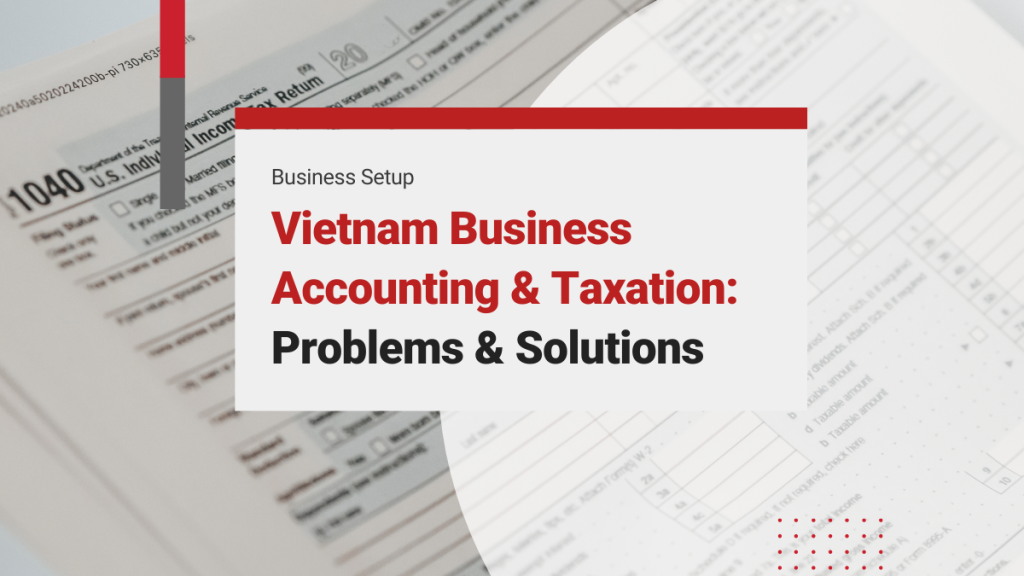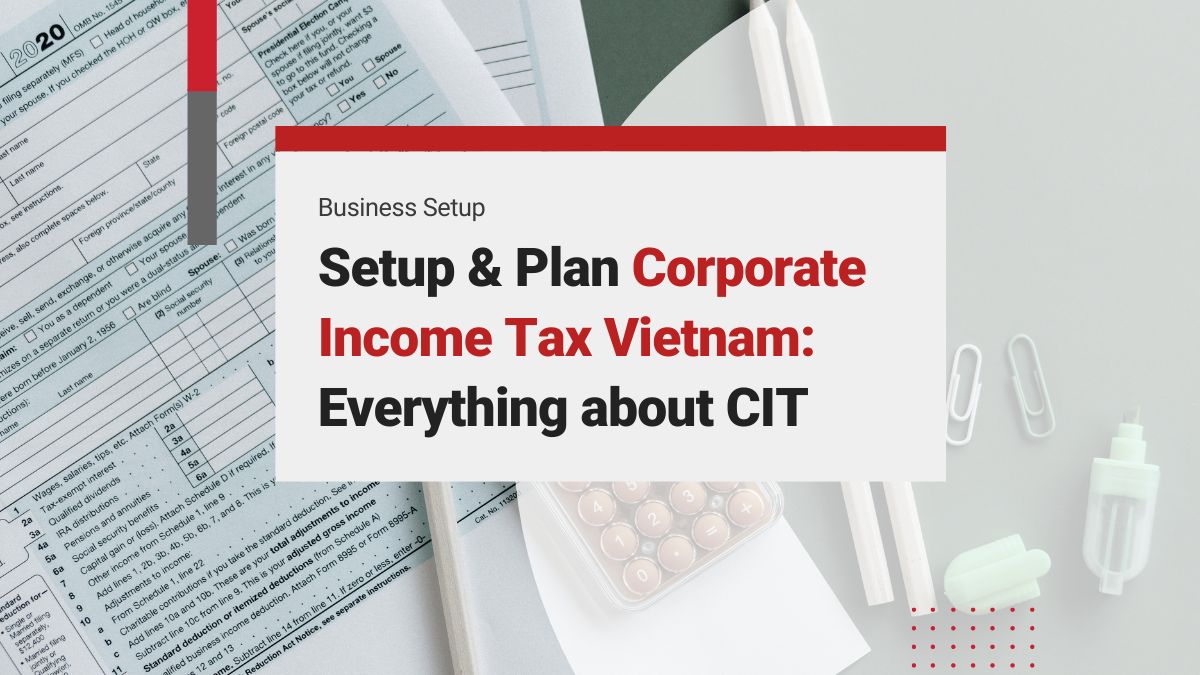Vietnam’s accounting and taxation system is evolving rapidly. The government has introduced sweeping reforms to modernize taxation laws, tighten taxation compliance, and support small businesses. For many businesses, partnering with reliable accounting and taxation services experts in Vietnam has become essential to keep up with the country’s evolving financial regulations and compliance requirements. At the same time, Vietnam’s taxation authorities are pushing digitalization – mandating electronic invoicing and online filings via a centralized e-taxation platform. For SMEs and startups, staying compliant in this taxation environment requires constant updates on the law, careful accounting processes, and often outside expertise.
- Complex, Frequent Reporting: Vietnamese companies face heavy taxation reporting obligations (monthly, quarterly, annual) under constantly changing rules. For example, all businesses must file provisional corporate income taxation (CIT) returns within 30 days after each quarter and the final annual return within 90 days after year-end. VAT must be declared monthly (by the 20th of the next month) or quarterly, depending on turnover. These multiple taxation deadlines – for CIT, VAT, PIT, and others – make a “one-size-fits-all” approach impossible; each company needs a customized compliance calendar.
- Electronic Filing and Documentation: Vietnam now requires all taxation filings to be done online through the General Department of Taxation’s portal. Businesses must obtain a licensed digital signature (e-token) and use approved software or XML formats to submit returns. In practice, this means investing in compliant accounting tools and training staff on the e-taxation system. Failure to file electronically can result in refused submissions.
- Tax Registrations and Declarations: Companies must update their taxation registration whenever corporate details change (e.g. address, charter capital, legal representative). Late notifications of such changes are penalized (fines ranging from a few hundred thousand to several million VND). Similarly, detailed books of account (in Vietnamese) must be maintained and submitted on demand, including financial statements and audit reports at year-end.
In short, complying with Vietnam’s taxation laws is time-consuming and exacting. Many foreign and domestic SMEs find it challenging to track all taxation obligations. A written taxation compliance plan and regular internal checklists can help ensure nothing is missed.
Internal Accounting Department Challenges
Vietnam’s business culture emphasizes harmony and respect for hierarchy, but this can create internal control risks. Employees often avoid reporting mistakes or omissions, fearing blame or simply “saving face”. For example, an accountant who discovers an error in a tax form may quietly correct it without telling management, rather than triggering a discussion. This tendency can allow small issues to grow into big liabilities if unchecked.
Likewise, many companies rely heavily on one person – typically the in-house accountant or bookkeeper – to handle all tax and accounting tasks. In small firms especially, that individual may prepare financial statements, submit tax returns, issue invoices, and keep the books alone. Without a second review or oversight, simple mistakes or missed deadlines can easily slip through. Even larger companies sometimes over-trust a star accountant, compounding risk if that person leaves or errs.
To address these risks:
- Encourage Transparency: Cultivate a company culture where staff feel safe to report errors or ask questions. Leaders should emphasize that catching and correcting mistakes is more valuable than hiding them. Regular team meetings to review accounting issues can help surface problems early.
- Implement Review Controls: Ideally, every tax return or financial statement should be checked by someone other than the preparer. If headcount is limited, consider having a director or CFO spot-check key entries, or use external consultants for review. Multiple layers of review help catch omissions in time.
- Segregate Duties: Where possible, divide responsibilities (e.g. invoicing vs. bookkeeping vs. payroll) among different staff or shifts. This limits errors and fraud. If resources are tight, even alternating the bookkeeping role between two people can introduce a helpful fresh perspective.
- Seek Professional Oversight: For many SMEs, outsourcing certain tasks (such as monthly bookkeeping, tax filings, or annual audits) to a reputable firm provides an extra layer of review and expertise. External advisors can help ensure local compliance and alert management to any issues.
By proactively managing communication and controls, companies can reduce the chance of compliance “surprises” and avoid penalties for overdue or incorrect filings.
Read More: An Essential Guide of Taxation & Compliance Deadlines in Vietnam
Accounting Standards and International Reporting
Vietnamese companies use Vietnamese Accounting Standards (VAS) as the legal baseline. VAS is very prescriptive – for example, it mandates a fixed chart of accounts and specific formats for ledgers and financial statements. Software used for bookkeeping must also be officially approved under VAS, which often limits the ability to use international ERP or accounting systems. As a result, most local accountants are trained only in VAS rules, not IFRS or U.S. GAAP practices.
For foreign investors, this can complicate financial reporting. Consolidating Vietnam entities under global accounts may require extensive adjustments. Start-ups should be aware that VAS uses a cash-adjusted accrual approach and lacks many IFRS concepts (for example, VAS has limited guidance on fair value or consolidated statements). This means Vietnamese-prepared books may not easily translate into IFRS without a conversion exercise.
However, Vietnam is moving toward IFRS convergence. A major overhaul of accounting regulations is expected by 2026. A new circular (replacing Circular 200/2014) will align VAS more closely with IFRS, and a full IFRS implementation roadmap is planned. In practice, this means companies will need to:
- Update their chart of accounts and financial statement formats to new templates (effective 2026).
- Enhance disclosures (notes, segments, etc.) to meet international norms.
- Invest in training and systems capable of producing IFRS-compliant reports.
In the meantime, SMEs should ensure their accounting system can produce both VAS-ledger entries and any formats needed for group reporting. Engaging accountants familiar with international accounting (for instance, those who have worked at global firms) can smooth this transition.
Related Articles:
- Your Comprehensive Guide to Taxation Incentives in Vietnam
- Requirements for Your Accounting Department: What does a Chief Accountant Do?
Common Compliance Violations & Penalties
Vietnam’s tax laws prescribe specific fines and penalties for late or inaccurate filings. The government actively enforces deadlines, and penalties escalate quickly for non-compliance. Some typical infractions include:
- Late filing of tax returns: A warning is issued for a 1–5 day delay (with legitimate reasons). Otherwise, failing to file a CIT or VAT return 30 days or less late incurs a fine of VND2–5 million. For 31–60 days late, the fine is VND5–8 million. Delays of 61–90 days attract VND8–15 million. Beyond 90 days (with tax due), fines jump to VND15–25 million, plus interest on any unpaid tax (0.03% per day). In practice, even a one-month delay can cost several million dong.
- Underpayment of provisional tax: If a company underpays its quarterly CIT, it must pay interest (currently 0.03% per day on the shortfall). This interest applies from the original due date until full payment. Companies should self-calculate any underpayment and include it in their final return to avoid inspectors’ adjustments.
- Failure to submit audited financials: The final annual CIT return must include audited financial statements. Missing or late audit reports can trigger penalties or delay approval of the tax return. Companies that finalize their accounts late often face administrative fines (typically in the millions of dong) and may be denied carryforward of losses.
- False or incomplete declarations: Minor mistakes (e.g. missing a line item) that do not change the tax liability can still be fined about VND0.5–2.5 million. More serious errors that affect the tax due can lead to VND5–8 million penalties. In all cases, authorities will require a corrected return and payment of any additional tax.
- Transfer-pricing violations: Vietnam has OECD-style transfer-pricing rules. Related-party transactions must be at arm’s length, and large companies must prepare detailed TP documentation (local and master files). If the tax office finds disguised profit shifting (e.g. excessive charges to a related party), it can re-adjust income and impose fines under the Tax Administration Law. Companies should ensure they meet all documentation thresholds to avoid this risk.
- VAT invoice and bookkeeping errors: Misusing invoices or failing to issue required VAT invoices can incur fines (e.g. VND10–20 million for no invoice) as well as denial of VAT credits. Late or incorrect VAT filings are penalized similarly to CIT (see above). Keeping accurate books and issuing proper invoices is therefore essential to avoid fines and to preserve input tax deductions.
- Operating outside registered scope: Conducting business activities not stated in the company’s registered field (for instance, a trading company manufacturing goods) is illegal. The fine for this violation is typically VND1–5 million for organizations. If discovered, the company may be forced to amend its registration or halt the extra activities.
In addition to fixed fines, taxpayers must pay late-payment interest of 0.03% per day on any underpaid tax. In egregious cases of tax evasion (deliberately underreporting income), fines can equal the amount of tax evaded (minimum) and up to triple for serious abuse (plus possible criminal charges). Overall, Vietnam’s tax enforcement is becoming stricter: random audits and data cross-checks are common, especially for large taxpayers and certain sectors.
Looking for Accounting & Taxation Operational Assistance? Find Out About InCorp Vietnam’s Corporate Tax & Compliance Outsourcing Services
Tips on Setting Up Your Accounting & Taxes When Expanding
To avoid tax infringements and fines, businesses should hire skilled tax specialists to manage and advise on their tax obligations. Competent tax professionals are trained to detect errors and discrepancies in tax forms, reducing the likelihood of costly mistakes. Additionally, they can help identify and claim all eligible tax credits and deductions, potentially saving you money. A well-planned tax strategy tailored to your financial situation is another benefit tax specialists provide.
InCorp Vietnam encourages all foreign investors, especially those new to Vietnam’s complex tax system, to seek professional tax and accounting assistance. This not only saves time and unnecessary costs but also ensures compliance, paving the way for a successful market entry and business operations in Vietnam.
Read Related: Expert Consulting Tax Services in Vietnam: Third-Party Audit & Advisory Solutions
Maintaining an annual audit report, which includes records like personal and commercial taxes, balance sheets, and profit/loss statements, can be daunting. These records must comply with the latest government regulations, often requiring a dedicated department and additional investments. A highly recommended solution to address these challenges is outsourcing your tax and accounting needs.
Benefits of Outsourcing:
- Time Savings: Outsourcing allows you to focus on core business activities, such as daily operations and client acquisition.
- Cost Reduction: It cuts down on overhead costs associated with hiring, training, and purchasing necessary hardware and software.
- Access to Expertise: You gain access to experienced professionals without the need for extensive HR efforts.
- Scalability: Outsourcing offers the flexibility to scale operations efficiently, with resources readily available for any accounting role.
- Risk Minimization: Outsourcing minimizes the risk of miscalculations or delays, ensuring accurate and timely financial management.
For more information on how we can assist you, fill out the form below to speak with one of our experts.

Guides
A Practical Guide to
Corporate Tax & Compliance Work
in Vietnam
the rates are, and when to submit them.


clients worldwide

professional staff

incorporated entities in 10 years

compliance transactions yearly
Learn the Right Setup for Business
Expansion in the Vietnam
Frequently Asked Questions
What is the tax in Vietnam?
- Vietnam imposes several types of taxes, with the main ones being Corporate Income Tax (CIT), Value Added Tax (VAT), and Personal Income Tax (PIT). The standard CIT rate is 20%, VAT is typically 10%, and PIT rates for residents range from 5% to 35% on a progressive scale. Additionally, Foreign Contractor Tax (FCT) applies to payments to foreign entities without a legal presence in Vietnam. Other taxes may include special sales tax, import-export duties, and environmental protection tax depending on the business activities.






